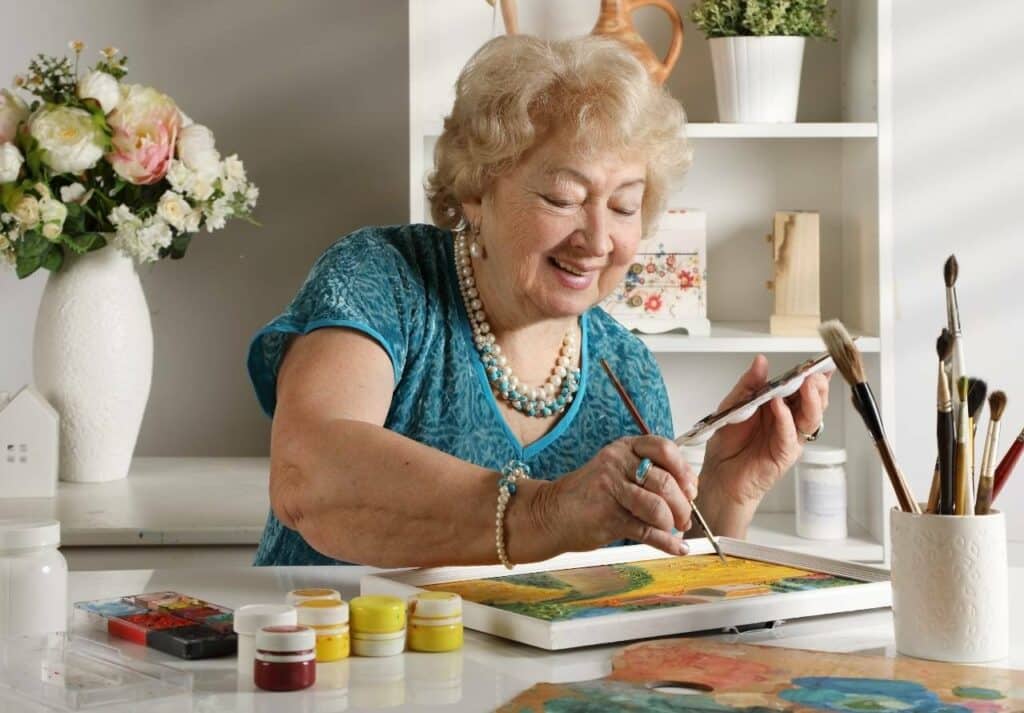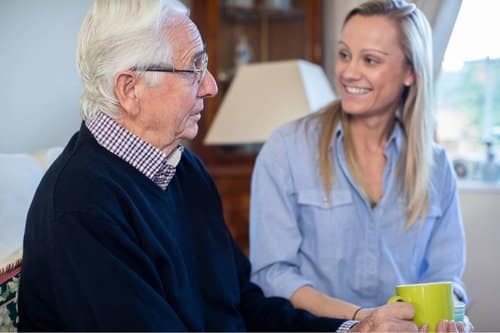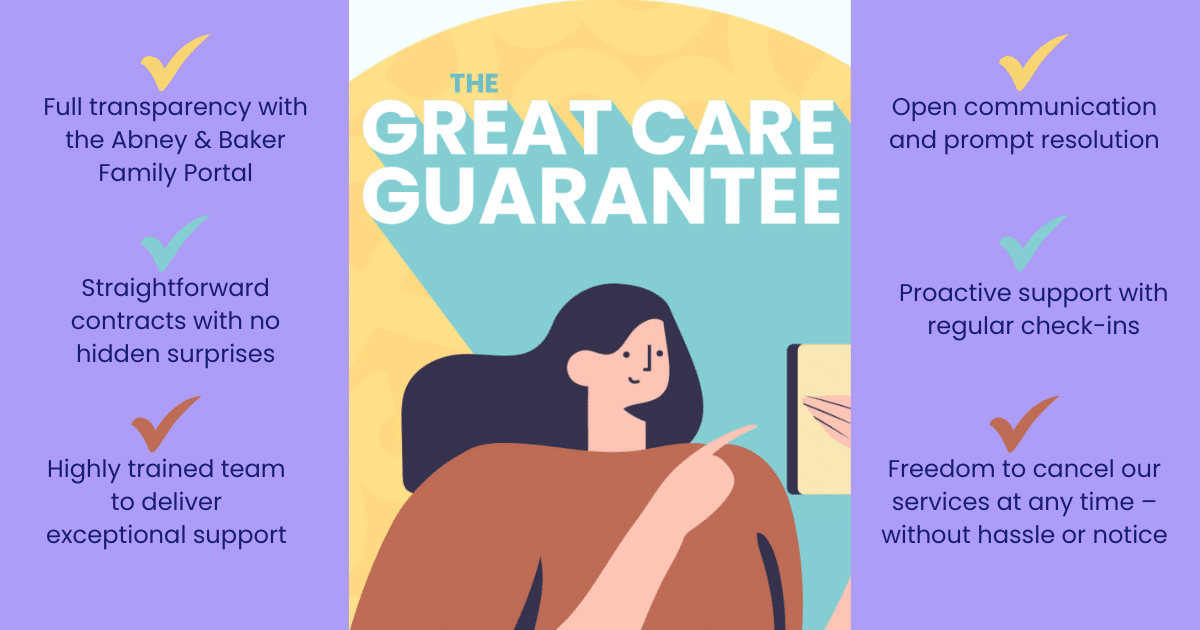What is sensory impairment?
When your loved one’s sense of sight, hearing, smell, touch, taste, or spatial awareness stops working as it should, it’s known as sensory impairment. Sensory impairments are common in a number of people that already have partial sight and hearing loss.
The sensory loss (such as hearing or sight) can lead to your loved one finding it tricky to communicate with others. It can also cause them distress and frustration in their daily life.
Therefore, your loved one will require care and support from their family and friends to communicate effectively while dealing with a sensory disability.
Sensory impairment care

The experience of our carers means they’re fully aware and can empathise with your loved one’s situation. They remain mindful of potential dangers such as trip hazards and sharp edges that can physically hurt your loved one. The care service providers can also interpret the mood and gestures of your loved one allowing them to handle any abrupt behavioral changes.
If your loved one is diagnosed with dementia they may also have sensory impairment which makes communication extremely difficult for them.
It is also possible that your loved one experiences hearing or sight loss due to aging. So you must ensure that they have regular appointments with hearing and sight specialists to keep their hearing aid and glasses working properly.
Our home carers can ensure that your loved one not only gets care and support but they are also regularly going for their appointments. They can keep track of their health and report to your loved one’s specialist if their sight or hearing impairment worsens.

Types of impairment
Loss of sight
Carers can encourage your loved one to have regular visits to their opticians, allowing the specialists to identify any deterioration of sight a lot earlier. Remember, most opticians offer free eye tests, so it doesn’t even cost a penny.
Our carer’s are always vigilant on their visits to your loved one. They’ll always be on the lookout for loose wires, broken handrails, raised rug corners and clutter that may cause a hazard. That way you can be sure your loved one is as safe as possible in the comfort of their own home.
For your loved one’s assistance and aid, there is also a range of gadgets that can be installed in their home. Most common of these are raised markings for appliance controls, clocks with high contrast faces, cable tidies, and telephones with clearly marked and defined buttons.
The home environment can have an impact on your loved one’s eyesight. For example, natural light and different colour schemes per room can significantly improve the quality of life for someone with sight impairment.
Hearing loss
Our carers can also effectively care for your loved one who is experiencing hearing loss. Their care responsibilities include understanding the feelings of your loved ones and treating them with kindness, empathy, and patience. They are also very used to reading lip movements, gestures, and facial expressions.
With a range of devices available for deafblind people, our care support managers will provide practical advice on which gadgets may be useful for your loved one to support their independence at home.
Some common gadgets are hearing aids and cochlear implants.
Caring for a person with sensory impairment

We understand how challenging it can be for you to take care of a loved one with a sensory impairment, and how frustrating it can be for your loved one to communicate with you. And if your loved one has dementia, it can be even more challenging.
At Abney & Baker, our professional carers can assist you with your loved one’s care as little or as much needed. We can provide you with a care plan with affordable pricing for home care services, so your loved one can have regular care and support.
Our respite care services are there to give both you and your loved one the time out you need to rest and recharge. You can be sure you’re leaving them in good hands.
Our services not only provide care for your loved one experiencing sensory disabilities, but also provide care for your loved one with physical disabilities, so their life becomes easier and their standard of living is not compromised.
Dual-sensory impairment care
Dual-sensory impairment is when someone is deafblind, the severity of this condition can vary from person to person. But it means the person is affected with loss of sight and hearing. Therefore, communication is extremely difficult for such individuals.
Our carers will provide your loved one with the best and most sensitive care for such a condition. With their sympathetic and extremely supportive method of care, they can gain the trust of your loved ones and make them and you feel reassured.
At home care and support for sensory impairment

If you are the primary carer for a loved one with sensory impairment, you might require home care services to ensure your and your loved one’s well-being. At Abney & Baker, we can offer you a care package that suits your specific needs. Whether you need a little assistance a couple of times a week or a visit from a care professional multiple times a day, we’re here to help.
Our personal care services provide regular and consistent care and support, which is particularly useful for people who are living alone and want to retain their independence.
What can providers do?
Contact Abney & Baker for sensory impairment care
You don’t need to face your loved one’s sensory impairment needs alone. Our professional team provides the best in class care for clients regardless of their additional requirements to ensure they continue to live happy, safe and independent lives at home.
You can learn more about SENSORY IMPAIRMENT CARE in Melksham, UK here.
If you do want to talk to us about the challenges you’re currently facing and how we may be able to support you and your loved one, then do give us a call or click below to book a call and we’ll give you a shout back.
Helping your loved one to continue living independently and confidently in their own home.
By providing a range of support at home, we’re helping many clients across Bath & North East Somerset and West Wiltshire retain their independence and stay in control in the comfort of their own homes.
Remember we’re always here if you want to chat about your care options. Just get in touch:
Call 0333 043 4880 – Email enquiries@abneyandbaker.com – Book a call here














